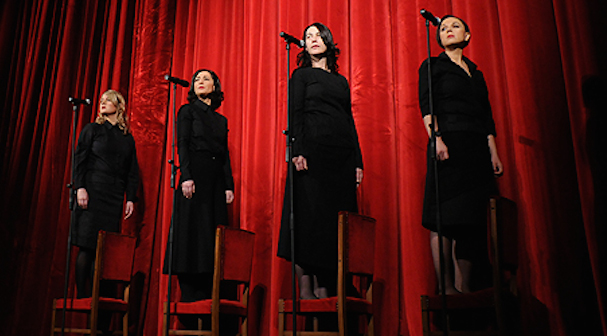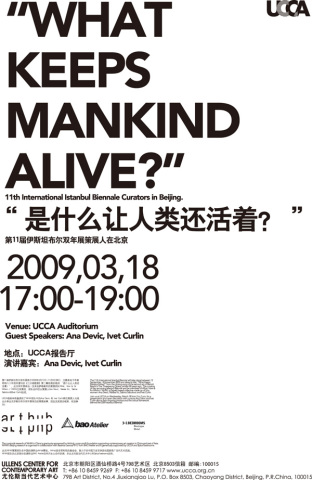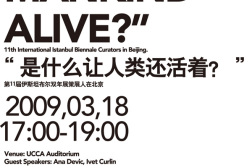

Istanbul Biennial Curators (WHW) visit China
Arthub is organizing/sponsoring the research trip of curators from the 11th Istanbul Biennial (Croatian Collective WHW) from March 16th until the 25th, 2009 in China, to identify shared research topics and relevant artist projects.
The 11th International Istanbul Biennial will take place between 12 September to 8 November, 2009 and takes its title, What Keeps Mankind Alive? from the closing song of the second act of Bertolt Brecht’s The Three Penny Opera, written 80 years ago. The curators of the 11th International Istanbul Biennial are members of the not-for-profit What, How and for Whom (WHW), consisting of four women: Ivet Ćurlin, Ana Dević, Nataša Ilić and Sabina Sabolović. The curators have never been to China before.
The initial conversation with WHW started during Homeworks in Beirut last year, followed up in Turin during Manifesta program, and we are delighted that the curatorial exchange is coming to fruition this year. Our open invitation to China was part of Arthub’s conviction that there should be more collaborative frameworks developed within Asia-in this case between Turkey and China, and also to expand the many artists and cultural producers’ wings and vision within the rest of Asia.
Apart from organized studio visits, planned semi-public meetings with WHW include Ullens Center in Beijing, and Moca Artlab in Shanghai, so stay tuned. Special thanks to Beatrice Leanza and BAO for the coordination of numerous Beijing meetings.
More on the biennial concept here.
More about WHW:
What, How and for Whom (WHW) is a non-profit organization for visual culture and curators’ collective formed in 1999 and based in Zagreb, Croatia. Its members are curators Ivet Ćurlin, Ana Dević, Nataša Ilić and Sabina Sabolović. Since May 2003 WHW has been directing the program of Gallery Nova – non-profit, city owned gallery in Zagreb.
What, How and for Whom are the three basic questions of every economic organization that also concern the planning, concept and realization of exhibitions, as well as the production and distribution of artworks or artists’ position at the labor market. These questions, which were the title of WHW’s first project dedicated to the 150th anniversary of the Communist Manifesto, in 2000 in Zagreb, became the motto of WHW’s work and the title of the collective. Instrumentality of social capital in constituting the social post-socialist reality turned out to be a matrix for the development of WHW’s projects and their internal and external operations.
All WHW projects have been conceived as a platform for discussing relevant social issues through art, theory and media, as well as a model of collaboration and exchange of know-how between cultural organizations of different backgrounds. Besides exhibitions, WHW projects encompass lectures and public discussions conducted by international artists, curators and cultural theoreticians, publications and a book edition on contemporary cultural practice and cultural theory, radio broadcasts and interventions, screenings and live acts.
